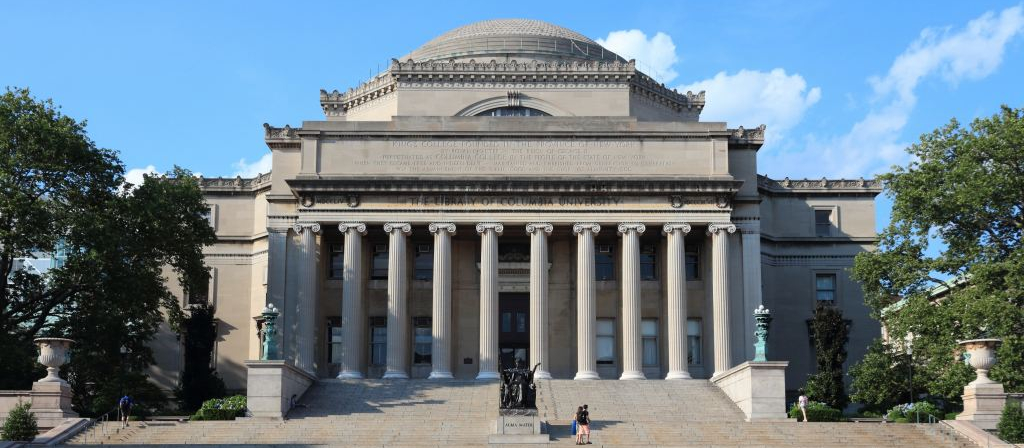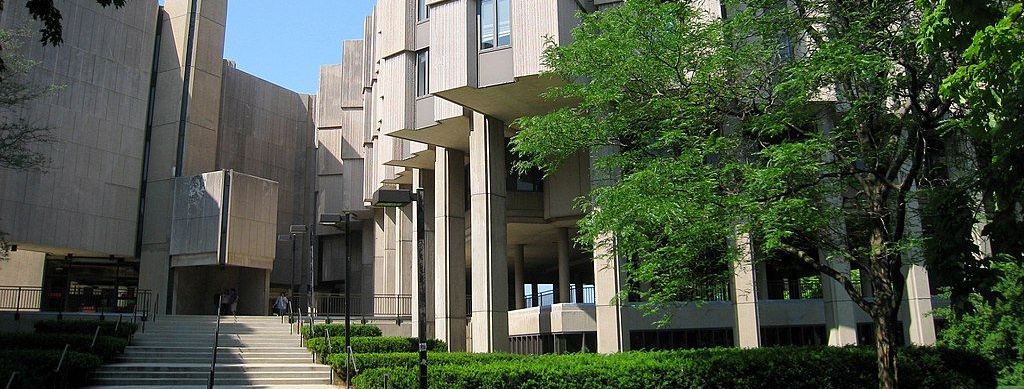The University of California at Berkeley, or Cal, as it’s lovingly called, is a legendary institution of higher learning located in charming Berkeley, California, on the eastern shore of San Francisco Bay. Read on to find out more about UC Berkeley, how to get in, and how to improve your applicant profile to increase your chances of admission.
How to Get into UC Berkeley: Table of Contents
- When to Apply to UC Berkeley
- How Hard Is It to Get into UC Berkeley: Early Prep
- How Do You Actually Get into UC Berkeley: The Application
- Class Profile
- What Makes UC Berkeley Unique?
- UC Berkeley FAQs
When to Apply to UC Berkeley
Students seriously considering applying to Berkeley should start planning as early as possible in their high school careers. The undergraduate admission application deadlines are in the fall and winter of a student’s senior year of high school.
As a part of the University of California system, UC Berkeley participates in the UC Application. This is the only way for a prospective student to apply to UC Berkeley.
All University of California schools use the same application, allowing you to apply to more than one UC school without filling out different applications. The UC Application deadline is November 30, slightly earlier than most regular applications for admission.
Early, Rolling, and Regular Decision
The University of California system only has one admissions type: Regular Decision — it does not offer Early Decision or Early Action. Even students who consider Berkeley or any other University of California school their first choice cannot apply early. Since Early Decision is not an option, students cannot apply to Cal through a binding agreement.
Though many public state systems offer rolling admissions, the University of California system does not. Rolling admission is when universities accept applications throughout the academic year, on a rolling basis, without a specific deadline. In general, it’s helpful to understand all admission options and how they differ, such as Early Action vs rolling admission.
All students applying to any University of California school must apply Regular Decision by November 30 of their senior year.
Waitlisted Applications
The waitlist is one of the three possible admissions decisions an applicant may receive after applying to Cal, the other two being admission or denial. Universities only offer admission to waitlisted students if they have space in the class after the enrollment deadline for admitted students. Students must officially accept their place on the waitlist to possibly receive an offer of admission. That said, being admitted from the waitlist is quite rare — out of the 7,853 applicants who accepted a spot on the waitlist for fall 2024, only 26 were ultimately admitted.
Deferrals
Students may receive a deferral when applying to a university in an early round like Early Decision, Early Decision II, and Early Action. That’s why it’s important to know what to do if you have been deferred. That said, students cannot be deferred from Cal or from any other University of California schools because the schools do not offer early applications.
How Hard Is It to Get into UC Berkeley: Early Prep
Because Berkeley admits more California residents than it does non-residents, in-state students tend to have a higher likelihood of admission. However, admission rates are low regardless of residency:
- Class of 2026: 11.39%
- Class of 2027: 11.73% (in-state: 15.13%; out-of-state: 7.80%; international: 3.53%)
- Class of 2028: 11.04% (in-state: 14.93%; out-of-state 7.34%; international: 3.38%)
Students interested in attending Berkeley are typically among the strongest students at their high schools and perform at a very high level. But it’s not all about academics — prospective students are evaluated holistically.
Build Your Profile
Though the Berkeley application process, as a University of California system school, is a bit different than most, they are looking for the same things as other highly selective colleges and universities. So, what does Berkeley look for? First and foremost, they’re looking for students who can add to the “extraordinary educational atmosphere” on campus. While conducting a holistic review that considers academics, Berkeley is also looking for other important soft factors, like leadership.
Visit the Campus and a Class
One of the most productive and informative things a prospective student can do is visit the colleges they are interested in. Students seriously interested in Berkeley should consider visiting, not only to get to know the vibrant campus, but also to get to know the East Bay.
Berkeley’s visit options are robust, so if applicants get the chance to visit in person, they absolutely should consider it. In addition to in-person admissions information sessions, Berkeley also offers student-led campus tours, class visits, residence hall visits, and independent visits.
Connect with a Student
Connecting with a student is another excellent way of finding out if a school is right for you. You can connect with your campus ambassador, student tour guides, student speakers at information sessions, or even other students you meet while you’re visiting campus. Talking to a current student is really one of the best ways to get to know a college.
Learn About Any Student Experiences
When participating in any in-person or virtual admissions offerings, remember to pay close attention to student experiences and anecdotes. Any interaction with current students may give you a clearer sense of whether you can see yourself at any particular school.
Prospective students can also learn more about student experiences by pursuing Berkeley’s website and online publications, which provide many opportunities to learn about the kinds of academic and extracurricular experiences Berkeley students are having.
How Do You Actually Get into Berkeley: The Application
Now that you’ve learned about the different ways to build your profile and engage with Berkeley, it’s time to learn what it actually takes to get into Berkeley.
GPA Requirements
Berkeley requires in-state students to earn a minimum 3.0 GPA in the courses required for admission, and a 3.4 for students from outside of California. However, you will want to achieve the highest possible GPA to be a competitive applicant. The average high school GPA for the class of 2028 was 3.90.
SAT and ACT Scores
The UC schools are test-blind, which means they do not consider SAT or ACT scores for admission. UC Berkeley doesn’t consider test scores for scholarship purposes either. Applicants can still elect to submit scores, though they will not be used as a means of assessment. Instead, test scores can be used to fulfill a minimum requirement for course placement if a student is admitted and decides to enroll.
Personal Statement
Rather than just one personal statement, the University of California system requires four essays between 250 and 350 words in length. The UC system has its own application and does not participate in the Common Application or the Coalition Application. Students applying to the UC system must choose to answer four out of eight possible personal insight questions/essay prompts. These prompts from the 2023-24 application cycle give you some idea what to expect:
- Describe an example of your leadership experience in which you have positively influenced others, helped resolve disputes, or contributed to group efforts over time. (250-350 words)
- Every person has a creative side, and it can be expressed in many ways: problem solving, original and innovative thinking, and artistically, to name a few. Describe how you express your creative side. (250-350 words)
- What would you say is your greatest talent or skill? How have you developed and demonstrated that talent over time? (250-350 words)
- Describe how you have taken advantage of a significant educational opportunity or worked to overcome an educational barrier you have faced. (250-350 words)
- Describe the most significant challenge you have faced and the steps you have taken to overcome this challenge. How has this challenge affected your academic achievement? (250-350 words)
- Think about an academic subject that inspires you. Describe how you have furthered this interest inside and/or outside of the classroom. (250-350 words)
- What have you done to make your school or your community a better place? (250-350 words)
- Beyond what has already been shared in your application, what do you believe makes you stand out as a strong candidate for admissions to the University of California? (250-350 words)
Students should select the four essay questions they believe they can write the strongest essays for. It’s important to make sure there’s not too much overlap from one essay answer to another, so none of the essays read too similarly. That said, these four essay questions are also an excellent opportunity for students to write a cohesive, compelling narrative about themselves while highlighting diverse and multifaceted aspects of who they are.
Letters of Recommendation
The University of California system does not require or accept any letters of recommendation as part of their process. This means they do not want counselor or teacher recommendations from applicants. Remember to follow directions – if a school specifically states they do not accept letters of recommendation, do not send them.
Admission Interviews
The University of California system does not include an interview in its process.
Class Profile
As we already mentioned, students can apply to any of the UC schools using the same application. So, you may wonder how many people apply to Berkeley. Data for fall 2024 shows 124,245 applicants and 13,714 admits.
What Makes Berkeley Unique?
UC Berkeley is well-known for always pushing the envelope forward, challenging tradition and convention. In 1870, it was early to accept women as students. And in 1890, it was early to establish an international program and admit students from outside of the United States.
The tradition of student activism and protest is deeply entrenched at Berkeley. The Free Speech Movement took root at Berkeley in 1964, igniting a push for the right to demonstrate for political causes on campus. In 1969, students protested the university’s plans to develop several new campus buildings, advocating for a public park for Berkeley residents. Perhaps the most famous historical protests at Berkeley are the anti-Vietnam War protests that ignited student movements across the country.
The typical UC Berkeley student is politically aware and conscious and wants to contribute to their campus and local communities in meaningful ways. If you are a socially and politically engaged high school student, you may find the UC Berkeley legacy of community activism and change appealing.
One of Berkeley’s greatest strengths is its commitment to diversity and to social justice. All around campus at any given time, students can be found gathering and discussing important ideas and causes they care about. Over 35,000 students attend Berkeley, so there are many ways to contribute to the campus community. Students can get involved in recreational sports, student publications, student government and leadership groups, musical groups, and over 1,000 different student groups.
UC Berkeley FAQs
How do I apply to UC Berkeley?
You apply through the University of California (UC) application system. The application typically opens on August 1, and the submission period is from October 1 to November 30 for fall admissions.
Does Berkeley require SAT/ACT scores?
No. UC Berkeley is test-free, meaning SAT/ACT scores are not used in any part of the admissions process.
When will I receive my admissions decision?
Most first-year applicants receive decisions in late March.
What are Personal Insight Questions?
These are essays that are part of the UC application. You answer four out of eight prompts, providing insight into your experiences, interests, ambitions, and inspirations. They are a critical way for the admissions committee to get to know you beyond your grades and test scores.
Admissions Counseling
To gain admission to a top university like Berkeley, most students could benefit from additional guidance. An IvyWise admissions counselor is an invaluable resource for students looking to apply to highly selective colleges and universities like Berkeley. Our counselors guide students throughout the entire college admissions process, from building a competitive applicant strategy and crafting a balanced college list, to brainstorming strong essays and supplements.
Getting into Berkeley is no easy task, but working with an IvyWise admissions expert can maximize your chances for acceptance at all your top-choice schools. The first step to working with us is to schedule an Initial Consultation.
Get Started




